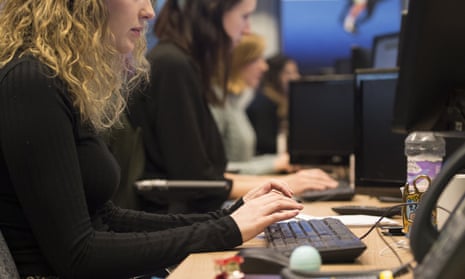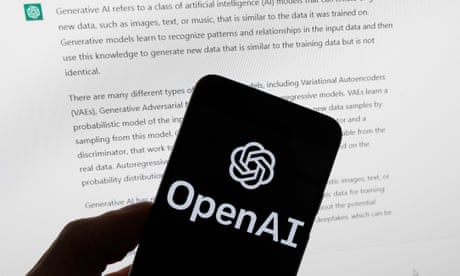Extract from The Guardian

With white-collar jobs and creative content at risk, the government is looking at the copyright implications of AI.
Science minister warns rapid growth of AI such as ChatGPT could affect white-collar workers, and asks industry to consider the implications.
Wed 17 Jan 2024 17.26 AEDT
Last modified on Wed 17 Jan 2024 17.30 AEDTThe government is considering the copyright implications of generative AI services such as ChatGPT and Dall-E, as content producers around the world, including movie studios and record labels, call for licensing agreements for how their work is used. The government has also conceded news outlets and other producers were seeking compensation for their material.
Husic warned that the rapidly growing use of AI systems could affect white-collar office workers in the same way automated factory lines had affected manufacturing or agricultural sectors, saying big business had a responsibility to workers.
“It is incumbent on businesses to think through, when they’re using technology, what it does to their workforce,” he said.
Speaking in Canberra at the launch of the government’s response to its consultation about AI, Husic said further work with the tech industry would continue in 2024. Initiatives such as voluntary codes for transparency and accountability and requirements to watermark AI-generated images to curb disinformation, would be further investigated.
The interim response suggests nearly a dozen areas of law, from data privacy to consumer protections, may need reform to keep pace with accelerating AI development.
Copyright has been a prominent area of global discussions about AI, regarding information and content used by AI models to generate text, images, video and audio. The New York Times is suing OpenAI and Microsoft for copyright infringement, with similar complaints made by authors or artists.
The newspaper has suggested “remedies” for copyright infringements, but Husic didn’t rule out requirements for licensing agreements.
“Some newspaper outlets or the generators of that copyrighted material are saying ‘No, we actually need to be compensated and recognised for that.’ It’s a bit difficult,” Husic said.
He raised the example of Google, which he said benefited from “permissiveness” in online regulation in its early days.
“It was able to crawl all over the internet in the late 90s, soak up all that data, train them … would we allow what happened in the late 90s right now?” Husic asked.
He said such issues were complicated, noting there were more permissive laws for fair use of copyright material in other jurisdictions. But he said attorney-general Mark Dreyfus was leading a reference group on copyright reforms – including how they pertained to AI.
Australia has previously pursued ambitious online reforms in relation to global tech firms, such as a news media bargaining code where social media platforms were forced to negotiate licensing deals with news outlets.
A spokesperson for Dreyfus said the reference group would consider transparency of AI models, the use of AI to imitate published work, and whether AI-generated work should itself get copyright protection.
Dreyfus has chaired one roundtable on copyright issues specifically related to AI, as part of broader discussions around copyright. No decisions have yet been made.
Shadow communications minister David Coleman accused the government of a “thin response”, claiming “the government’s big idea … was to form another advisory committee”, which “kicks the can down the road”.
“There is a grave risk that Australia will be left standing still when it comes to the effective management of what is the next great industrial revolution,” he said.
Coleman also voiced concern about Australian content “being plundered by AI without fair compensation or agreement”.
The Australian Academy of Technological Sciences and Engineering welcomed the report but warned of an “urgent need” to move faster on enhanced misinformation laws and mandatory rules for high-risk AI uses.
Australian tech company Atlassian said it was important to build trust in AI, claiming it could benefit all citizens.
Husic said in an ABC radio interview that he was “not worried about the robots taking over,” instead voicing more concern about AI’s potential to seed disinformation. But in his later press conference he conceded the technology’s role in replacing human workers in some sectors.
“In times past, automation had a heavy impact on blue-collar work. AI now is making a big challenge to white-collar work … in financial markets, in accounting, in the way care is provided,” Husic said.
He said employment and workplace relations minister, Tony Burke, was also involved in further consultations about the workplace implications of the technology.


No comments:
Post a Comment